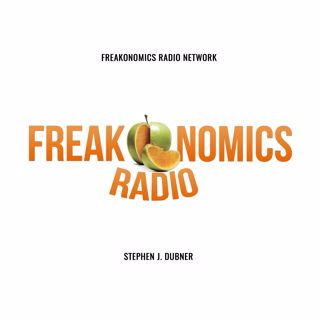Om avsnittet
Evidence from Nazi Germany and 1940’s America (and pretty much everywhere else) shows that discrimination is incredibly costly — to the victims, of course, but also the perpetrators. One modern solution is to invoke a diversity mandate. But new research shows that’s not necessarily the answer. RESOURCES:"Discrimination, Managers, and Firm Performance: Evidence from 'Aryanizations' in Nazi Germany," by Kilian Huber, Volker Lindenthal, and Fabian Waldinger (Journal of Political Economy, 2021)."Diversity and Performance in Entrepreneurial Teams," by Sophie Calder-Wang, Paul A. Gompers, and Kevin Huang (SSRN, 2021)."Systemic Discrimination Among Large U.S. Employers," by Patrick M. Kline, Evan K. Rose, and Christopher R. Walters (NBER Working Papers, 2021).City of Champions: A History of Triumph and Defeat in Detroit, by Silke-Maria Weineck and Stefan Szymanski (2020)."The Allocation of Talent and U.S. Economic Growth," by Chang-Tai Hsieh, Erik Hurst, Charles I. Jones, and Peter J. Klenow (Econometrica, 2019).Genius & Anxiety: How Jews Changed the World, 1847-1947, by Norman Lebrecht (2019)."And the Children Shall Lead: Gender Diversity and Performance in Venture Capital," by Paul A. Gompers and Sophie Q. Wang (NBER Working Papers, 2017)."The Political Economy of Hatred," by Edward Glaeser (The Quarterly Journal of Economics, 2005)."Statistical Theories of Discrimination in Labor Markets," by Dennis J. Aigner and Glen G. Cain (Industrial and Labor Relations Review, 1977).The Economics of Discrimination, by Gary S. Becker (1957).EXTRAS:"A New Nobel Laureate Explains the Gender Pay Gap (Replay)," by Freakonomics Radio (2023)."Edward Glaeser Explains Why Some Cities Thrive While Others Fade Away," by People I (Mostly) Admire (2021)."What Are the Secrets of the German Economy — and Should We Steal Them?" by Freakonomics Radio (2017).SOURCES:Kilian Huber, professor of economics at the University of Chicago.Silke-Maria Weineck, professor of German studies and comparative literature at the University of Michigan.Sophie Calder-Wang, professor of economics at the University of Pennsylvania.
Senaste avsnitten

595. Why Don't We Have Better Candidates for President?

594. Your Brand’s Spokesperson Just Got Arrested — Now What?

593. You Can Make a Killing, but Not a Living

EXTRA: The Fascinatingly Mundane Secrets of the World’s Most Exclusive Nightclub

592. How to Make the Coolest Show on Broadway

591. Signs of Progress, One Year at a Time

EXTRA: The Opioid Tragedy — How We Got Here

590. Can $55 Billion End the Opioid Epidemic?

589. Why Has the Opioid Crisis Lasted So Long?

